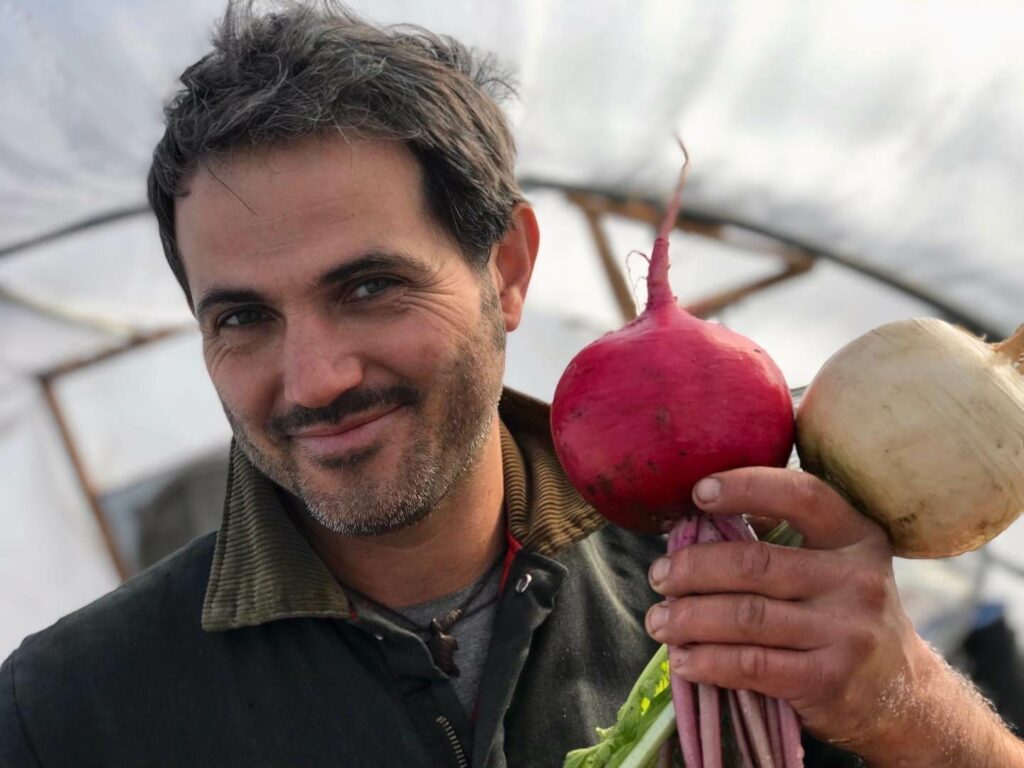Impact
Curious how the impact of composting affects the environment?
- Americans have never wasted so much food. The average American family wastes 400 lbs of food waste per household. That’s about 35 percent of the total U.S. food supply ending up in the trash. If all the food waste in the world were a country…it would be the size of India and Canada combined!
- What happens when food goes in the trash? When food waste ends up in regular, municipal trash, it is sent to the landfill. That means it gets mixed in with EVERYTHING ELSE in the landfill, from old car tires and plastic water bottles to fluorescent light bulbs to cleaning chemicals and broken flip flops.
- Food wasted in the landfill is truly... wasted. Instead of being recycled back into the soil + being used to grow healthy food, food waste in a landfill will turn into toxic sludge (aka “leachate”) that pollutes our waterways, ecosystems, and communities, while also generating noxious greenhouse gasses like carbon and methane that are destroying our planet!
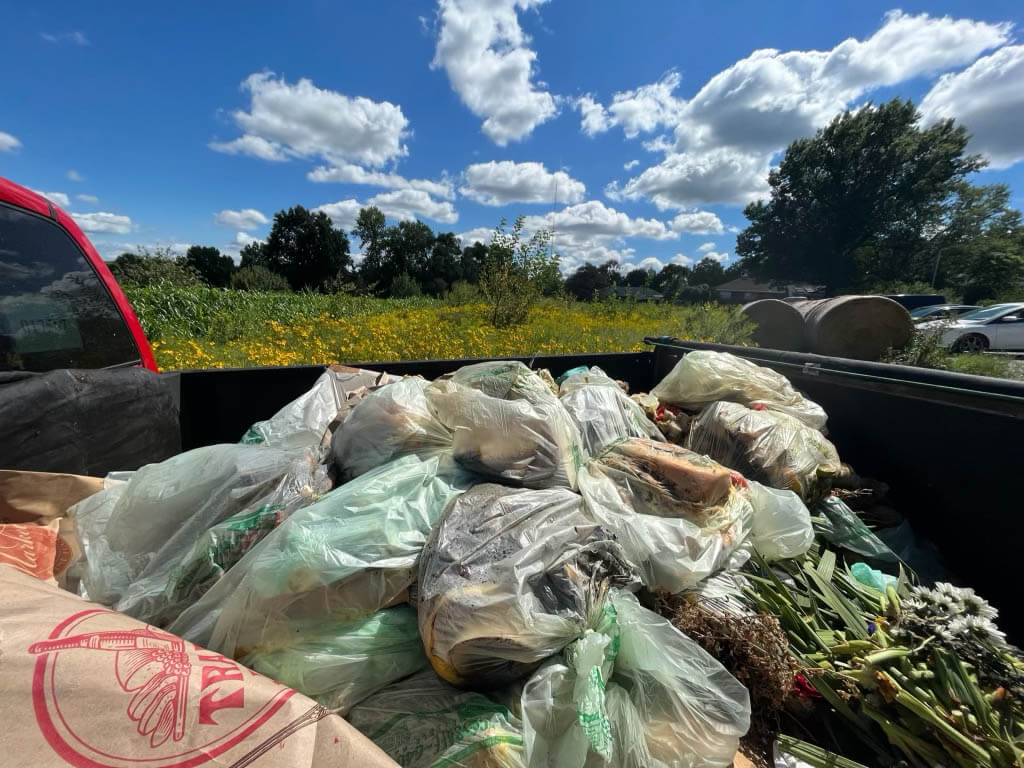
The simple habit of separating your food scraps into a compost bin can make an incredible impact toward a sustainable future for Kansas City.
Individual actions add up. Did you know that one KC family composting for 3 years can divert 1 ton of food waste from municipal landfills?! By composting your food waste, instead of putting it in the trash, you are replenishing local soil, limiting the production of methane + sequestering carbon from the atmosphere! Composting makes KC a better place to be for everyone!
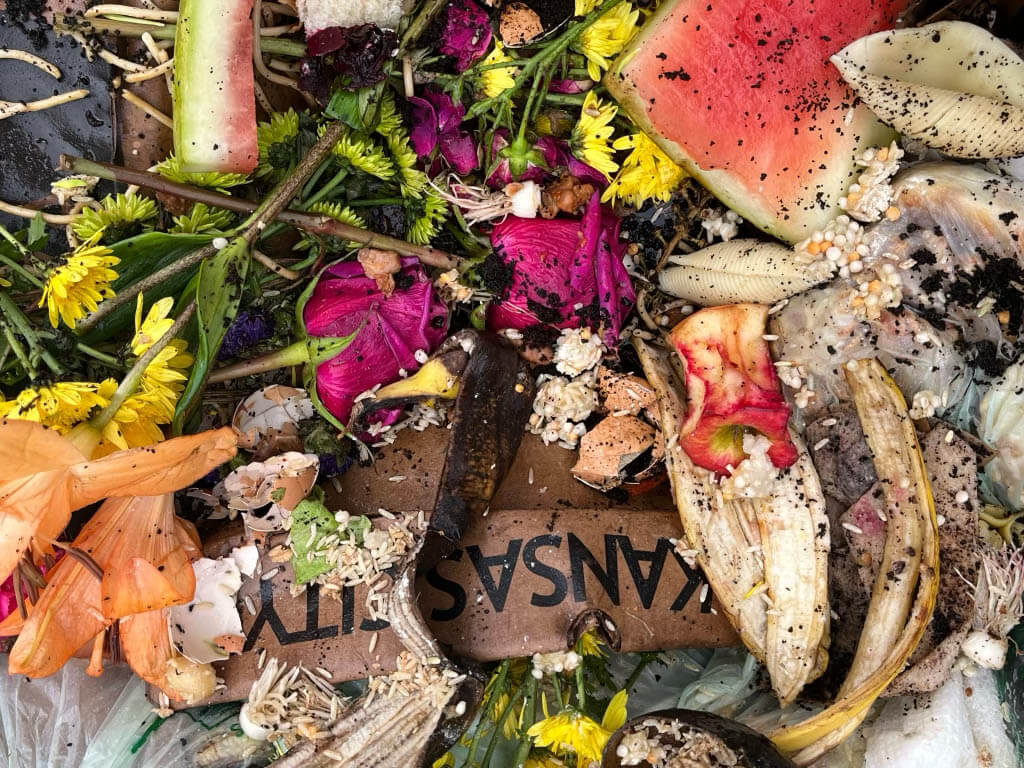
of food waste diverted from landfills.
0
lbs
of food waste turned
into nutrient rich compost!
into nutrient rich compost!
0
lbs
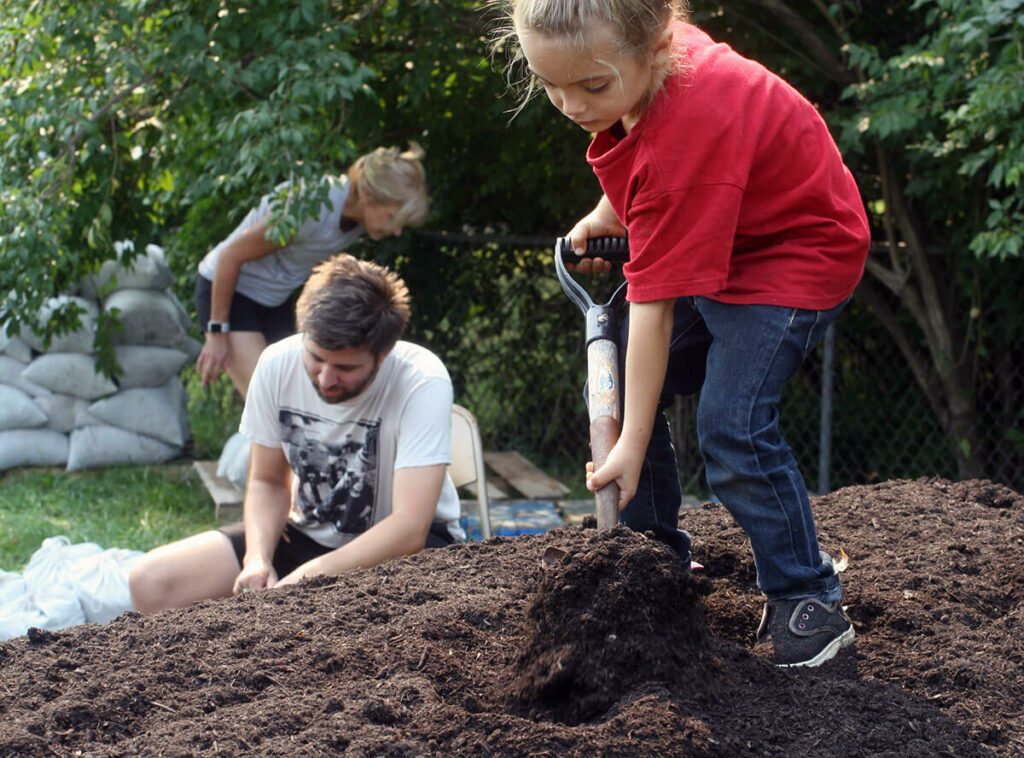
Which is equivalent to…
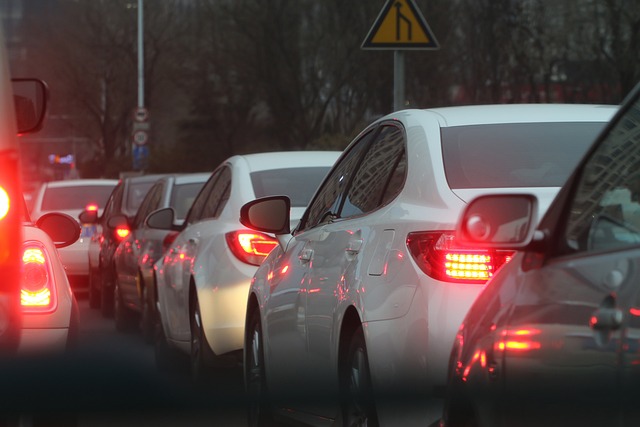
being removed from the road for one year.
0
cars
of healthy, local food grown with compost!
0
lbs
